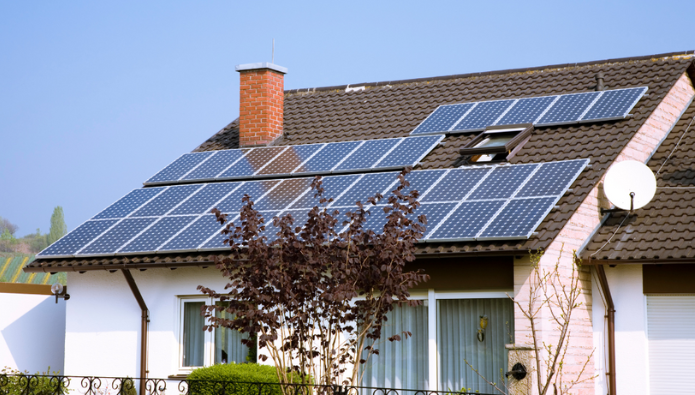
Table of Cotents
- What is an EPC?
- How much does an EPC certificate cost?
- How long does an EPC last?
- Legal Requirements for EPCs When Selling a Home
- How EPC Ratings Influence Buyer Decisions
- Impact of EPC Ratings on Property Value
- Will a Higher EPC Rating Boost Your Home Price?
- Improving Your Home’s EPC Rating
- Benefits of Higher EPC Rating
- EPCs and Environmental Impact
- What to Expect During an EPC Assessment?
What is an EPC?
EPC stands for Energy performance certificate, it is used to assess the energy performance of your property. The EPC certificate ranks your property from A which is the most efficient to G which is the least efficient. A study done in early 2024 found that the average majority of the houses in England and Wales have a D energy performance rating. However, please note that this study was done on the properties on the register.
How much does an EPC certificate cost?
When selling your home it is a requirement that you get your property assessed for an EPC, otherwise you will not be able to sell the property. An EPC usually can cost between £35 and £120 (Including VAT). This cost depends on the type of property you own and how many bedrooms it has.
How long does an EPC last?
The EPC is valid for 10 years from the date of issue.
Legal Requirements for EPCs When Selling a Home
From a legal standpoint, it’s essential to understand that an EPC is legally required for properties being sold or rented in the UK. If your EPC is over 10 years old, it is no longer valid. Property owners must ensure they have an updated EPC when leasing or selling their property. Failing to provide a valid EPC can lead to fines. Legal enforcement actions can be initiated by Trading Standards, and penalties for non-compliance can be substantial. To avoid such fines, it is advisable to renew your EPC and ensure it reflects the current energy performance of your property. This is not only a legal requirement but also serves as a beneficial tool for energy management and can influence the property’s marketability.
An estate agent can guide you through all the legal requirements when selling your home! Use our estate agent comparison tool to ensure you have the best estate agent by your side when selling.
How EPC Ratings Influence Buyer Decisions
EPC ratings significantly influence buyer decisions. A higher energy rating, indicating better energy efficiency, can make a property more appealing. This is because efficient homes tend to have lower energy bills, which is a desirable attribute for most purchasers. Buyers often consider ratings as a factor in the overall sustainability and future-proofing of their investment. Properties with poor ratings may require upgrades, potentially deterring buyers or affecting the purchase price. Therefore, understanding a home’s energy rating is crucial for buyers who want to prioritise energy efficiency and long-term savings.
Impact of EPC Ratings on Property Value
EPC ratings can really affect how much a home is worth. Homes with better ratings are more efficient, so they cost less to heat and power. This makes these homes more attractive to buyers who want to save on bills. On the other hand, homes with poor ratings can cost more to run. This might make them less appealing and cheaper to buy. Making your home more energy efficient can boost its rating and make it worth more. This is a smart move for homeowners looking to sell their property.
Will a Higher EPC Rating Boost Your Home Price?
Rightmove reported that sellers of homes with improved EPC ratings from D to C could see an increase in value of 3%, or £11,157. Moreover, improving from an F to a C rating could increase the property’s value by an average of an additional 15%, or almost £56,000, when looking at the current national average asking price.

Improving Your Home’s EPC Rating
To enhance your home’s energy rating, you can consider various upgrades across different cost levels:
Low-Cost Improvements:
- LED Lighting: Switching to LED bulbs is one of the easiest and most cost-effective ways to improve your EPC rating. LEDs use less energy and last longer than traditional bulbs, making this a straightforward update with immediate benefits in energy efficiency.
- Hot Water Cylinder Insulation: Adding an insulation jacket to your hot water cylinder can improve its efficiency and contribute to a better EPC rating, with an average cost of about £70 and straightforward DIY installation.
Medium-Cost Improvements:
- Loft Insulation: Enhancing loft insulation is a highly effective method for improving energy efficiency, especially if the existing insulation is below the recommended thickness. The cost can vary but typically falls within a moderate range, offering significant potential energy savings.
- Double Glazing: Replacing old windows with double-glazed units can significantly reduce heat loss, though the investment is higher than simple insulation or lighting changes. Costs will depend on the number of windows but generally start around £2,000 for a small home.
High-Cost Improvements:
- Solar Panels: While the initial outlay for solar panels is substantial, they can dramatically improve your property’s EPC by increasing its energy generation capability. Installation costs can vary widely but typically start from around £5,000.
- Boiler Upgrade: Replacing an old boiler with a new, more efficient model can be costly but significantly boosts your EPC rating. This upgrade can improve the rating by as much as 40 points, depending on the age and condition of the existing boiler, with costs ranging between £1,000 and £3,000.
These investments not only improve your home’s energy rating but can also enhance property value and reduce long-term energy costs. For detailed costs and specific recommendations tailored to your property, it’s best to consult with a certified energy assessor or retrofit coordinator who can provide a comprehensive evaluation and improvement plan based on current standards.
Benefits of Higher EPC Rating
Improving your home’s Energy Performance rating can lead to substantial long-term savings and benefits:
- Reduced Energy Bills: Homes with better EPC ratings use less energy for heating, cooling, and lighting. This can significantly lower energy bills over time.
- Increased Property Value: Properties with higher EPC ratings can attract a higher sale price. Buyers often value the energy efficiency as it implies lower future costs.
- Enhanced Comfort: Improved insulation and efficient heating systems can make a home more comfortable by maintaining more consistent temperatures and reducing drafts.
- Lower Carbon Footprint: Efficient homes contribute less to carbon emissions, helping to reduce your overall environmental impact.
- Eligibility for Incentives: Some government schemes offer incentives for energy-efficient homes, which can help cover the costs of upgrades.
These benefits highlight the importance of investing in energy efficiency measures to improve your EPC rating, leading to financial gains and a more sustainable lifestyle.
EPCs and Environmental Impact
EPC ratings significantly impact the environmental performance of properties and, by extension, contribute to broader environmental goals like reducing carbon emissions. Here’s a brief overview of how ratings help in this context:
- Reducing Carbon Footprint: Buildings with higher EPC ratings use less energy, which means they generate fewer carbon emissions. This is crucial as the UK aims to reduce greenhouse gas emissions significantly by 2050, with interim targets to guide progress (GOV.UK, 2023).
- Future Legislation and Targets: EPC ratings are becoming increasingly central to UK housing regulations and environmental policies. Improving a building’s EPC rating aligns with national goals to transition to a low-carbon economy and meet stringent future carbon reduction targets (GOV.UK, 2024).
- Economic and Environmental Benefits: Updated and higher EPC ratings can make properties more attractive not just economically but also environmentally. They signify lower energy use, reduced environmental impact, and alignment with the UK’s carbon reduction plans. These factors make properties with better EPCs more desirable in the market (RICS, 2024).
In essence, enhancing your home’s EPC rating is not just about compliance or saving on bills—it’s also a crucial step towards contributing to the UK’s ambitious environmental goals. Each improvement in the EPC rating helps ensure that properties consume less energy and generate less carbon, thereby supporting the national targets for energy efficiency and carbon reduction.

What to Expect During an EPC Assessment?
During an EPC assessment, a qualified assessor will visit your home to evaluate its energy efficiency. The assessor will inspect key elements such as walls, floors, windows, loft, heating systems, and lighting. Expect the process to take around an hour, depending on the size and complexity of your property. The assessor will need access to all rooms and may take photographs as part of their evaluation. To prepare for an EPC assessor and aim for the best possible rating:
- Ensure all light bulbs are working and replace any that are not, ideally with energy-efficient LED bulbs.
- Make sure the assessor can easily access key areas like the boiler, hot water cylinder, loft, and windows.
- Clear any obstructions that might prevent the assessor from accessing important elements of your home.
- Provide any documentation of recent energy improvements, such as new windows, insulation, or a new boiler, which can positively impact your home’s energy rating.
These preparations can help smooth the assessment process and potentially improve your home’s EPC rating.
Conclusion
As we conclude, remember that EPC ratings aren’t just figures on a certificate. They’re a key to more energy-efficient, cost-effective, and environmentally friendly living. A higher rating not only promises lower energy bills but can also boost your home’s market value. It’s a practical guide to making smarter, greener choices for your home and the planet. Embrace your EPC as a roadmap to a better, sustainable future. You can get a copy of your EPC by visiting the EPC Register.
